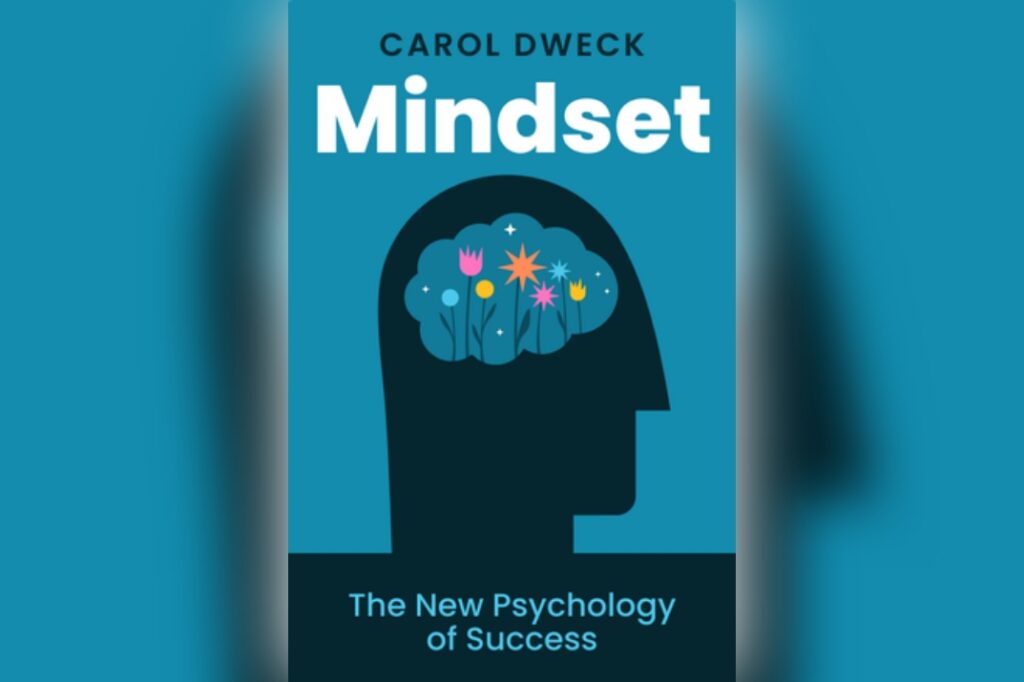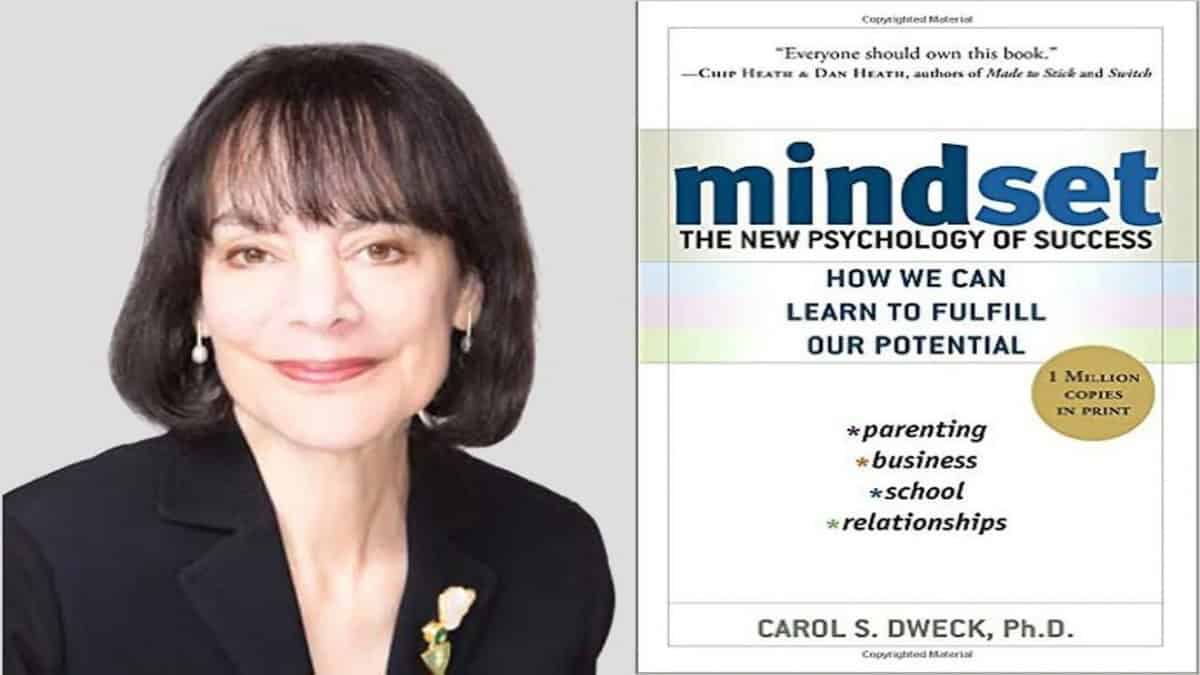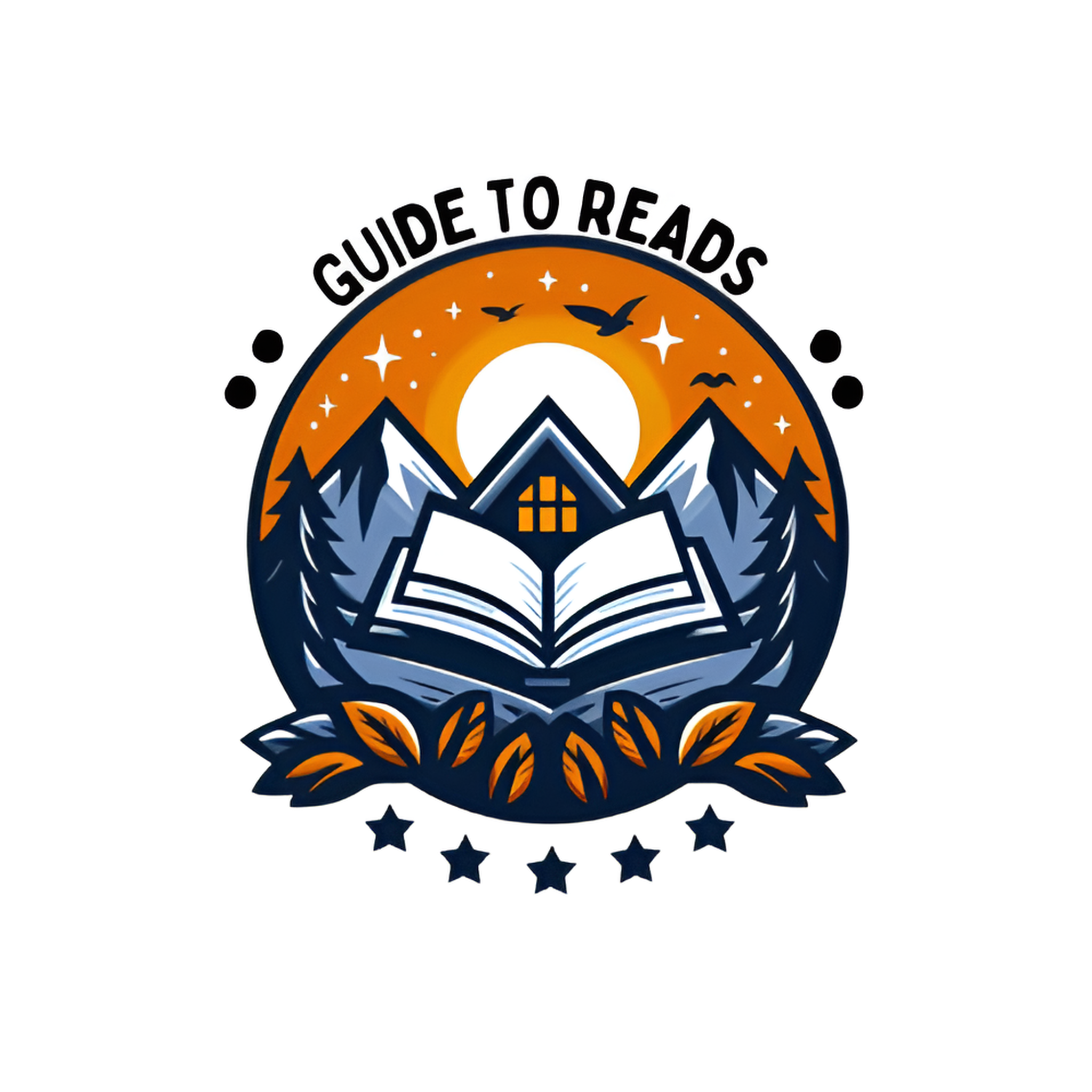Carol Dweck, a leading psychologist, has revolutionized how we think about success, learning, and personal development through her groundbreaking work on the growth mindset. Her research delves into how our beliefs about our abilities influence everything from our education to our careers and relationships. In this article, we will explore books by Carol Dweck that unpack the power of adopting a growth mindset and how it can transform lives. Whether you’re an educator, parent, or simply looking to improve yourself, Dweck’s work offers profound insights into unlocking human potential.
Carol Dweck : Harnessing the Power of a Growth Mindset
Mindset: The New Psychology of Success
At the heart of Carol Dweck body of work is her book, Mindset: The New Psychology of Success. In this seminal work, Dweck introduces readers to the concept of the growth mindset, contrasting it with the fixed mindset.

A. The Growth Mindset vs. The Fixed Mindset
A fixed mindset is the belief that abilities, intelligence, and talents are static and unchangeable. People with this mindset tend to avoid challenges, give up easily, and feel threatened by the success of others. They worry that failures may prove their inherent lack of ability. In contrast, a growth mindset is the belief that abilities can be developed through dedication, hard work, and learning. This mindset encourages embracing challenges, persistence in the face of setbacks, and finding inspiration in the success of others. Those with a growth mindset see effort as the pathway to mastery rather than a sign of weakness or low ability.
B. Key Takeaways from the Book
The power of believing you can improve your skills over time with effort is explored in depth. Dweck illustrates how praise and feedback from an early age can instill either a fixed or growth orientation. She provides strategies for cultivating a growth mindset in all aspects of life, such as reframing challenges, focusing on process over outcomes, and seeking learning from both successes and failures. Dweck argues compellingly that a growth perspective leads to greater fulfillment and success, as it fosters resilience, passion for continuous self-improvement, and motivation even in the face of difficulties. As such, Mindset offers a must-read for anyone seeking impactful ways to shift their mindset for better achievement and well-being.
The key messages are presented clearly yet thought-provokingly. Numerous real-world examples showcase the profound differences that variations in mindset can make. Dweck’s extensive research and case studies bring the concepts to life, helping cement their practical relevance for personal and professional development. Mindset illuminates an insight with immense power – that our potential is not fixed but rather can expand continuously through the right attitude and application. This groundbreaking work has lasting value for all seeking to harness the benefits of a growth mindset.
Self-Theories: Their Role in Motivation, Personality, and Development
In Self-Theories: Their Role in Motivation, Personality, and Development, Carol Dweck dives deeper into the psychology behind how we form beliefs about ourselves and how these beliefs shape our behavior and motivation. While more academic in tone than Mindset, the book offers invaluable insights for those interested in understanding the concepts on a fuller, research-driven level.
A. Exploring Self-Theories
Dweck outlines the two main self-theories that guide how individuals interpret their experiences. Entity Theory (Fixed Mindset) corresponds to the belief that traits are fixed and unchangeable. Proponents of this view see low effort as confirmation of a lack of ability. Incremental Theory (Growth Mindset) mirrors the belief that abilities and intelligence can be developed over time through effort and strategy.
B. How Self-Theories Influence Motivation
Dweck explains in detail how our core beliefs about self-definition shape our goals, reactions to challenges and perception of effort. Through comprehensive analysis of empirical studies, she demonstrates that an incremental self-view fosters resilience and stronger motivation. Readers gain valuable insight into the psychological mechanisms that underpin the mindsets. Adopting a growth philosophy is shown to unlock our potential for continuous learning and lead to a more gratifying life experience defined by a sense of free agency over self-development.
The book rigorously grounds the mindset framework within established theories of motivation and human psychology. Its academic presentation provides useful theoretical context while still maintaining relevance for a general audience. Self-Theories offers a fascinating deeper dive for those seeking comprehensive clarity on Carol Dweck revolutionary models of mindset and self-concept.
Mindset: Changing the Way You Think to Fulfill Your Potential (Updated Edition)
In the updated edition of Mindset, Dweck refines and expands upon the ideas in her original book. She includes more practical tips on how to apply the growth mindset in various aspects of life, including education, parenting, business, and relationships.
A. New Insights and Practical Applications
In this updated edition, Dweck addresses some common misconceptions about the growth mindset, such as the oversimplified idea that it’s just about praising effort. She emphasizes that a true growth mindset involves more than just effort; it’s about continuously learning, improving strategies, seeking feedback and finding effective methods to overcome challenges. Dweck provides further guidance on evaluating strengths and weaknesses objectively without damaging self-esteem.
B. How to Foster a Growth Mindset in Different Settings
In the Classroom: Helping students embrace learning and effort rather than being defined by their grades. Teachers can focus on process, set rigorous yet achievable goals, and encourage perseverance through difficulties.
In Parenting: Encouraging children to take on challenges, learn from both successes and mistakes, and see failure as an opportunity rather than a stigma. Parents can model growth-oriented language and behavior.
In Business: Creating a company culture where employees feel safe to innovate, take calculated risks to further their skills, and learn holistically from inevitable failures along the road to success. Growth-focused feedback and recognition of improvement efforts can boost this mindset.
The updated edition of Mindset expands practical knowledge on achieving our highest potential through adoption of a learning-oriented philosophy. Dweck’s refined guidance empowers positive change across diverse settings.
- Book review : « Mindset » by Carol Dweck
- Reach Your Dreams: Essential Books for Achieving Goals
- Best Books to Cultivate a Clear Mind and Improve Your Thinking
- Elevate Your Life: The Essential Annual Reading List for Maximum Effectiveness
Developing Talent and Abilities in Young People
Carol Dweck research has been especially influential in the field of education. Her studies showing that students who believe they can improve their abilities through effort and learning tend to perform better academically and are more motivated to succeed have sparked meaningful changes.
A. Growth Mindset in Education
Educators have incorporated Dweck’s insights by encouraging a growth mindset perspective in their classrooms. Teachers guide students to see challenges and mistakes not as indicators of limitations, but as opportunities to deepen their knowledge through perseverance and strategic learning. This shift fosters an environment where effort, strategies, perseverance through setbacks and passion for continuous betterment are valued over displays of innate ability. Teachers support each child’s potential through process praise and goal-setting focused on progress.
B. Empowering Students
By cultivating growth mindsets, teachers and parents can help students develop crucial self-regulatory skills and a lifelong orientation toward education. This is especially impactful for those facing academic struggles or societal disadvantages – instilling the belief in their capacity to improve through effort significantly boosts achievement and wellbeing into adulthood. A growth perspective fosters resilience when facing difficulties, and motivation to keep striving for mastery. Proper encouragement allows each student to fulfill their potential by pursuing learning as an exciting journey rather than a destination.
Dweck’s work has had remarkable influence in nurturing the growth and development of young people worldwide through a paradigm embracing education as a continuous, collaborative process rather than performance of static competence.
2. Research and Articles by Carol Dweck
In addition to her books, Carol Dweck has published numerous influential academic papers and articles that delve into specific aspects of the growth mindset and its applications. These works continue to shape fields like educational psychology, organizational behavior, and personal development, underscoring the enduring impact of her research.
Some of her key articles include « The Role of Expectations and Attributions in the Alleviation of Learned Helplessness », where Dweck carefully investigates how an individual’s mindset can influence the development of learned helplessness—the belief that one has no control over outcomes. She offers strategies for overcoming this debilitating perspective based on adopting a growth mindset.
In the article « Implicit Theories of Intelligence », Dweck explores the connection between beliefs about intelligence and important learning behaviors/outcomes. Through compelling research, she demonstrates that viewing intelligence as a fixed, immutable trait undermines academic achievement, whereas those who see it as malleable tend to achieve more. This work reinforced the growth mindset concept as an evidence-based framework, especially for educational contexts.
Dweck’s prolific research contributions have cemented her position as one of the most influential psychologists of modern times. Her work ignited paradigm shifts across diverse fields seeking to actualize human potential. As a testament to its enduring relevance, these publications continue impacting millions worldwide aspiring towards positive change.
3. The Impact of Carol Dweck Work
The influence of Carol Dweck work extends far beyond academia. Her research has been embraced by educational systems seeking to nurture each child’s potential, as well as business leaders wanting to cultivate cultures of growth, learning and continuous self-improvement among employees. Meanwhile, Dweck’s finding have helped athletes, coaches and sports psychologists emphasize strategies and effort over innate talent to build resilience.
On an individual level, millions worldwide have been inspired by Dweck’s books and studies to make positive changes in their lives. By understanding intelligence and abilities are not fixed traits but rather can be developed ongoingly, people have adopted a more empowering and dynamic approach to challenges. Dweck’s audience continues growing as her message rings ever more relevant in our rapidly evolving world.
- Book review : « Mindset » by Carol Dweck
- Reach Your Dreams: Essential Books for Achieving Goals
- Best Books to Cultivate a Clear Mind and Improve Your Thinking
- Elevate Your Life: The Essential Annual Reading List for Maximum Effectiveness
Conclusion: Unlock Your Potential with a Growth Mindset
Carol Dweck work revolutionizing perspectives on success, learning and development has empowered communities globally. Whether students seeking to maximize academic achievement, educators nurturing each child, or professionals driven to excel, her evidence-based growth mindset framework presents invaluable guidance. Books such as Mindset: The New Psychology of Success illuminate how a change in orientation can unlock previously untapped abilities through resilience and passion for improvement.
Dweck’s extensive body of research merits exploration by all aspiring to fulfill their potential. For newcomers, start by absorbing her compelling ideals in Mindset. Then, contemplate your own mindset and how Dweck’s strategies could augment motivation and outcomes. Consider sharing in the comments your key learnings or the impact of adopting this empowering philosophy. Let’s continue the important dialogue on cultivating growth everywhere.

































Add comment